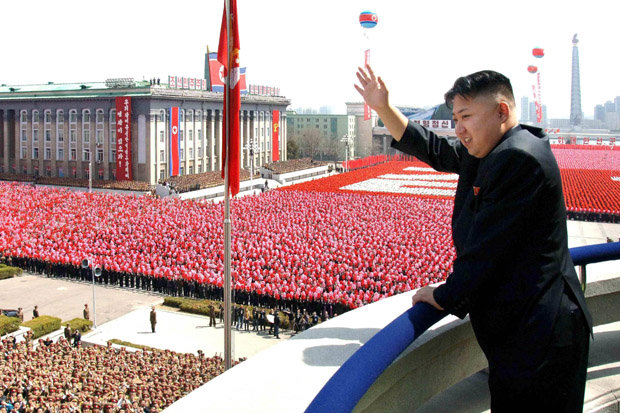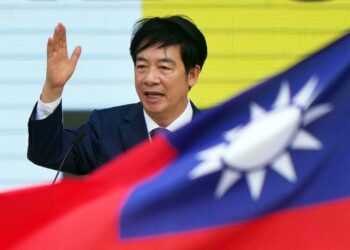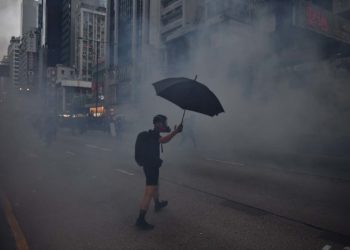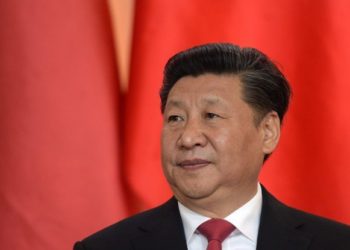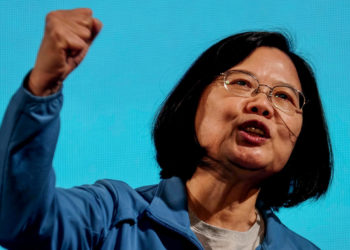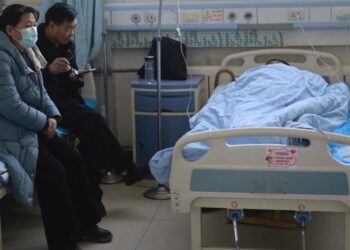Dozens of trucks full of seafood have lined up at the Chinese border with North Korea, a sign that China is seriously considering to tighten the noose around the hermit kingdom after its bellicose behavior.
Starting this week, China stopped importing coal, iron, iron ore and seafood from North Korea. The move is an implementation of the harshest United Nations sanctions against North Korea and also the biggest step China has taken against the regime of Kim Jong-Un so far.
Protests have broken out at the border as trucks full of shrimp and crabs were blocked, which angered Chinese businessmen who made big profits from North Korean seafood.
According to the Korea Trade Investment Promotion Agency, North Korea made $196 million from seafood exports in 2016, almost all of which came from China.
China, as North Korea’s biggest trade partner and ally, has been accused by the U.N. and the U.S. of doing too little to enforce sanctions against Pyongyang. Yet the recent escalated tensions between the U.S. and North Korea pushed China to take action.
Last week, President Donald J. Trump’s threats to North Korea went from “fire and fury” to military solutions being “locked and loaded.” Pyongyang, in return, announced plans to fire four missiles to the Pacific territory of Guam.
Yinhong Shi, director of Center for American Studies at the Renmin University of China, said the North Korea’s biggest backer is very disappointed. “China has just made comprise while the U.S. president screwed things up,” according to the state-owned news outlet Reference News.
China is gravely concerned over the Korean Peninsula, but the threat is mostly coming from the South.
“Further escalation of the conflict between the United States and North Korea can threaten Chinese national interests,” Dr. Hak-yin Li, a lecturer at the Chinese University of Hongkong, told The Globe Post.
“This can be seen previously from the establishment of THAAD [Terminal High Altitude Area Defense] in South Korea, which affects Chinese security. If China does not send a strong signal to North Korea, Pyongyang’s continuous provocations can only further jeopardize regional stability, [such as the] militarization of South Korea and Japan, and increasing American military presence in the region.”
China has been vocal about its opposition to the deployment of THAAD in South Korea. Since last year, Chinese citizens had organized unofficial protests to boycott South Korea’s large conglomerate Lotte Group, who agreed with the Seoul government to relinquish its golf club for the deployment of THAAD.
As a result, Lotte Shopping saw its consolidated operating income dropped 49 percent on-year to $78 million in the second quarter of 2017, according to South Korea’s Financial Supervisory Service.
Sangsoo Lee, a senior research fellow at the Institute for Security & Development Policy, explained that while many think Beijing is concerned about the THAAD radar, which can detect Chinese intercontinental ballistic missile (ICBM) toward the U.S., China has not blamed other radar systems with the same function.
“What China really fears is South Korea’s further military relationship with the U.S. as Beijing sees the THAAD as a symbolic factor for the increase of U.S. power with its allies in the region. Further, it could accumulate growing capabilities over time as the THAAD in South Korea will be a part of whole US MD system,” Mr. Lee said.
On August 17, during a meeting between Changlong Fan, vice-chairman of China’s Central Military Commission and Chairman of the U.S. Joint Chiefs of Staff Joseph Dunford, Mr. Fan emphasized again that a military action is not an option to resolve the nuclear crisis.
The remarks came after tensions over North Korea seemed to ease, with Mr. Kim deciding to hold off on the missile strike towards Guam.
But there are not many options on the table for China.
“In the past, North Korea was willing to meet with the Chinese envoy, but North Korea declines to do so right now,” Mr. Li noted. He added that one thing China has repeatedly done in recent years is to let the U.S. talk to North Korea directly. He said China can facilitate the meeting, but only Washington can settle the dispute with North Korea by offering Pyongyang security guarantee that the U.S. will not attack North Korea after the dismantlement of its nuclear program.
Mr. Lee predicted that China would support North Korea’s demand for the withdrawal of U.S. army on the Korean Peninsula and the cessation of the joint military exercise.


